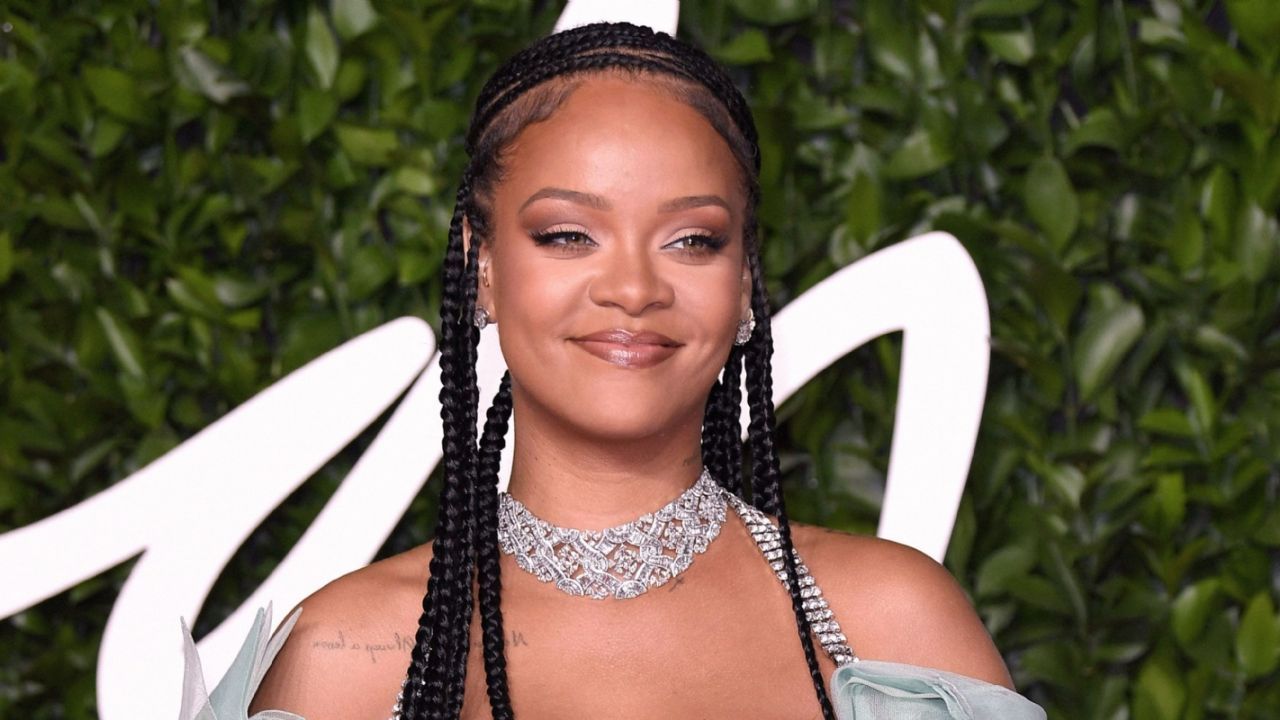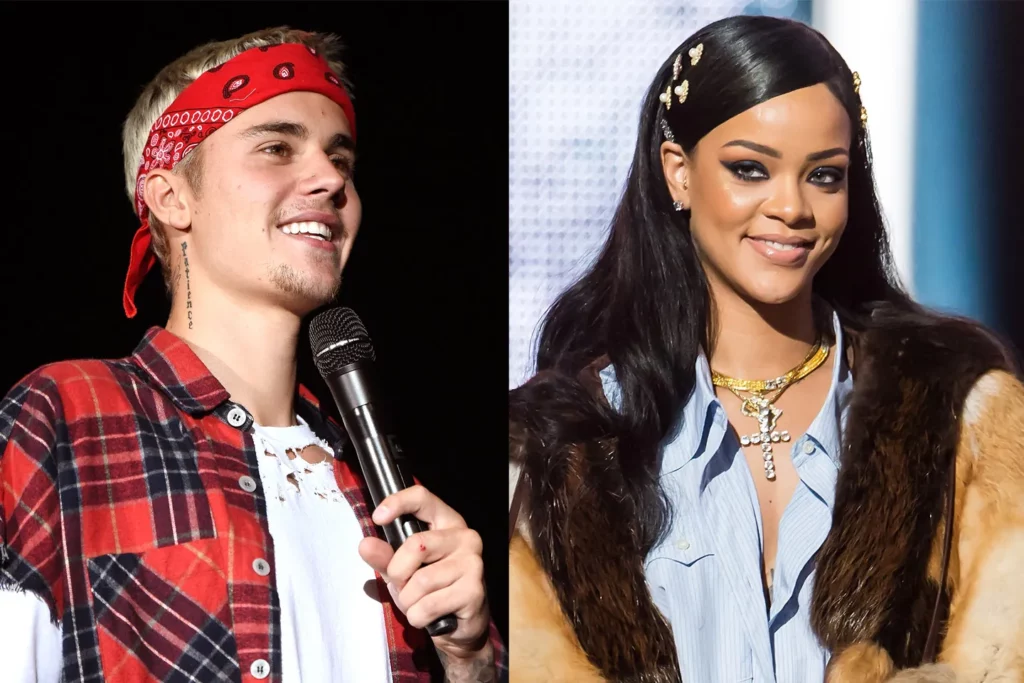In the ever-evolving landscape of celebrity culture, past interactions can unexpectedly resurface, igniting debates and discussions. Recently, a 2010 tweet by Rihanna has come under fire, just as conversations about Justin Bieber’s teenage experiences have re-emerged due to his association with Sean ‘Diddy’ Combs. This situation brings to light not only the challenges faced by young stars but also how their actions and words can be misinterpreted through the lens of today’s scrutiny.

Rihanna’s Tweet: A Moment of Innocence or Misjudgment?
The controversy kicked off when Rihanna’s throwback tweet resurfaced, where she praised the then-16-year-old Bieber for showing off his abs at a New York restaurant. At the time, Rihanna tweeted, “He showed me his abs, and they were impressive!” This light-hearted moment, however, has attracted unwarranted hate, as many now criticize Rihanna for not being more protective of the young pop star.
As fans reflect on Bieber’s tumultuous teenage years, they express sympathy for the pressures he faced while growing up in the spotlight. The criticism of Rihanna’s tweet raises questions about the responsibility of older artists when interacting with younger counterparts. Social media users have argued that as an established artist, Rihanna should have set a better example. Yet, this backlash seems disproportionate to the playful nature of her original comment.
The Context of Justin Bieber’s Teenage Stardom
Bieber’s teenage years were far from easy, as they were filled with the trials of fame and public scrutiny. Recently, his past interactions with Diddy have drawn attention after the music mogul was arrested, reigniting discussions about the dark underbelly of the music industry. Fans are rallying behind Bieber, expressing concern over his youthful exposure to questionable figures and situations, suggesting that his participation in Diddy’s parties at just 15 years old may have had lasting effects on his mental health.
The gravity of the situation is highlighted by Bieber’s own words during a past interview with Ellen DeGeneres, where he revealed his attempt to ask out Rihanna at the tender age of 16.
“I asked her out, and she said ‘No’. She said I was a bit too young,”
he recounted, shedding light on the playful yet complex dynamics between young stars in the industry.
Did Rihanna Cross a Line?
The backlash against Rihanna’s tweet has sparked debates about the appropriateness of her encouragement for a teenage boy to flaunt his physique. Critics argue that, as an adult, Rihanna should have known better than to engage in such banter with a minor. However, this perspective may overlook the context of their interaction.
According to sources, Bieber was the one who playfully insisted that Rihanna refer to his abs as “sexy,” revealing the dynamic between them during that encounter. Rihanna recounted on a radio show how Bieber insisted,
“You have to say it was sexy if you tweet it. You know it was sexy!”
This paints a different picture—one where the interaction was more of a humorous exchange rather than an inappropriate moment.
A Call for Compassion in Celebrity Culture
As the conversation continues to evolve, it’s crucial to consider the larger implications of celebrity culture and how easily moments from the past can be distorted by the present’s moral compass. Both Rihanna and Bieber are products of a high-pressure environment, and the scrutiny they face reflects broader societal issues surrounding the treatment of young artists in the industry.
In an era where mental health is increasingly recognized as a vital component of overall well-being, the industry must reflect on its practices and the environments it creates for emerging talents. With fans rallying to support Bieber amid criticism, it’s evident that empathy and understanding are essential as we navigate these complex narratives.
The resurfacing of Rihanna’s tweet and the discussions surrounding Justin Bieber serve as a reminder of the need for compassion in celebrity culture. As we reflect on their journeys, it becomes clear that young stars deserve support rather than judgment. It is vital to foster a culture that prioritizes the well-being of artists, allowing them to grow and evolve without the weight of past misinterpretations.
In the end, the conversations surrounding these moments should lead to a broader understanding of the challenges faced by young artists, encouraging a more supportive and less judgmental approach to their experiences.

